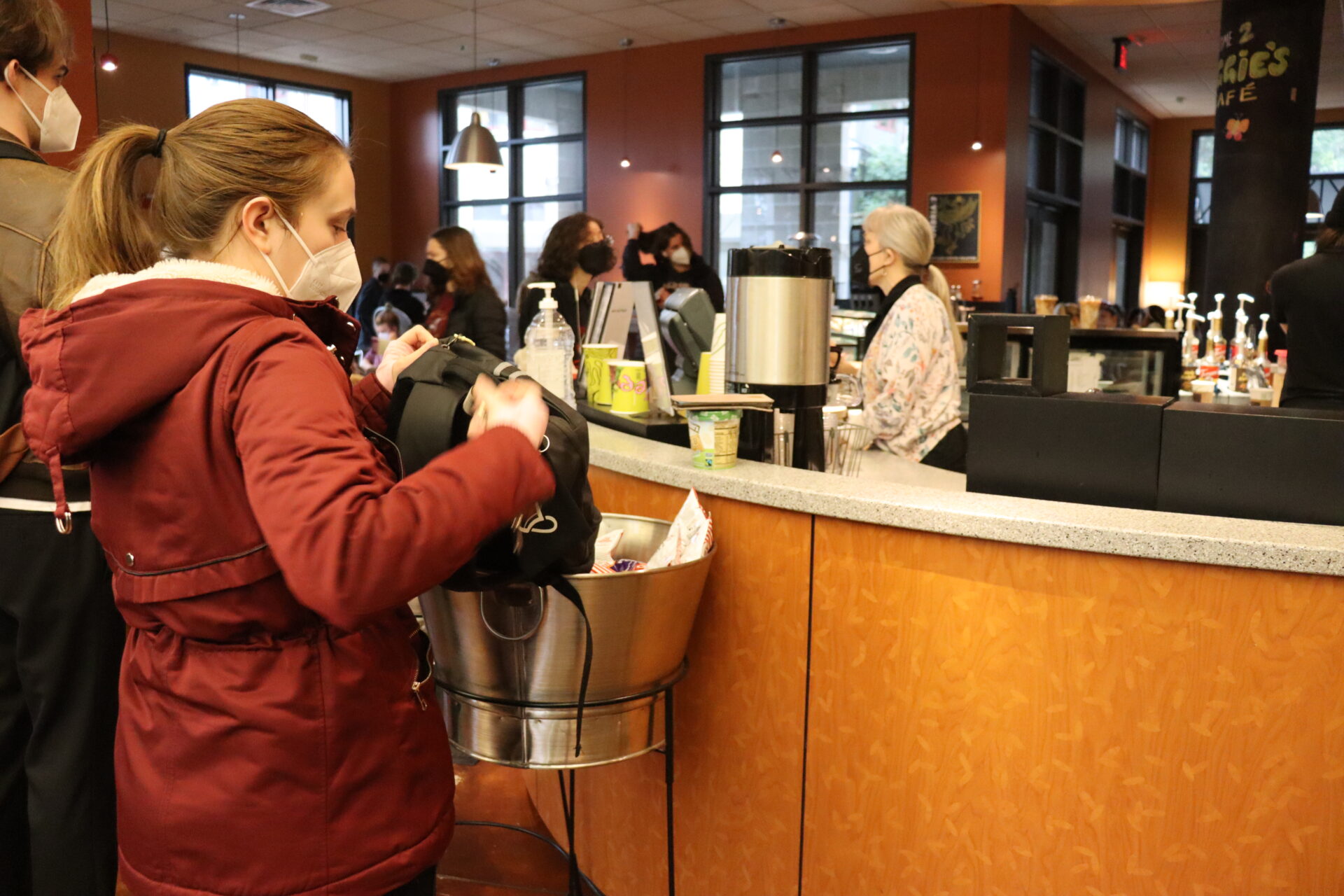
On March 8, Lewis & Clark announced that masks would no longer be required in indoor spaces starting March 12. Most of the college’s other COVID-19 regulations, including the vaccine mandate and mandatory quarantine periods for people who test positive, will continue to remain in effect.
“Places where mask-wearing continues to be required, such as particular classes or labs, will be clearly communicated by the relevant dean, vice president, office, or faculty member. Otherwise, masking will be optional,” an email released by LC’s administration office on March 8 said.
They also noted that cloth or surgical masks will likely fulfill such masking requirements.
This decision is in line with the state of Oregon’s decision to remove its mask mandate for indoor spaces and schools. This is the first time Oregonians have been allowed to take off their mask in indoor public places since mid-August 2021. LC joins many of Oregon’s other colleges and universities, in removing their mask mandates in response to the state mandate changing.
The state mandate was originally scheduled to end on March 31, but COVID-19-related hospitalizations in Oregon dropped below 400, which the Oregon Health Authority considers a safe threshold for relaxing regulations, and the mandate was lifted sooner than expected.
“My first reaction was, there’s going to be quite a bit of time for us to work this through,” Vice President of Student Life and Dean of Students Robin Holmes-Sullivan said. “Then it moved to March 19, and then it moved to March 12. So there’s a little bit of, ‘Oh, we’re going to have to move a little bit more quickly than what we were thinking.’”
Many students thought the announcement seemed to have come out of the blue.
“I kind of wasn’t expecting the school to go all-out mask-optional,” Noam Jacobs ’22 said. “I guess I would have expected to hear more about the consideration of it, like from professors.”
He also noted that the email to the community announcing the end of the mask mandate seemed to contradict itself by emphasizing the importance of community-wide measures but also saying masks are now a matter of personal choice. However, Cas Mulford ’23 thinks that the lifting of the mask mandate allows for new conversation between students and faculty, and is a step in a direction back towards normalcy.
“I think that what the college is trying to do is facilitate conversations between classrooms and communities about how they want to be together and meet,” Mulford said.
Others have commented on the relationship between the end of the mandate and the upcoming spring break.
“They’re getting rid of the mandates at a really dumb time,” Kinley Lefevre-Trigg ’24 said. “If people come back from the break having caught COVID, and they’re not wearing masks, even in the best-case scenario it’ll be a mess.”
Nonetheless, students have also voiced support for the mandate’s end. Within minutes of the email announcing the change in regulations, screenshots of the message were widely circulating on students’ Instagram stories, often accompanied with enthusiastic comments. However, many students also used Instagram to voice disagreement.
Holmes-Sullivan acknowledges that deciding to make masks optional has been difficult.
“The more we talk about it, the more we see we’re no different from the rest of the country,” she said. “Everyone has a bit of a different idea, and it’s a little bit more complex than just on or off.”
Holmes-Sullivan made the decision with the college’s Executive Council, which includes President Wim Wiewel, the four other vice presidents, the three deans and Senior Advisor to the President for Communications Lois Davis. The group is responsible for all the policies and procedures on campus, including COVID-19 regulations. Members of the Executive Council also sought outside opinion on the mask mandates from students, staff and faculty at LC before making their decision.
“We often rely on our outside constituents to give us feedback,” Holmes-Sullivan said. “So, I consult with the student body president, for example.”
She has also been meeting with the Associated Student Body’s COVID-19 Task Force, a group of students who act as a helpline between the student body and the administration on COVID-19-related issues.
At the moment, the administration believes they can weather any future challenge the pandemic may bring.
“We have a highly vaccinated population and a pretty compliant community,” Holmes-Sullivan said. “Our cases have been very, very manageable.”
Associate Dean of Students for Health and Wellness John Hancock agrees, adding that he is proud of the students for adhering to the sometimes burdensome restrictions.
“There has been a lot to be compliant with!’’ Hancock said via email. “Entry testing, masking, vaccine mandates, completing SCARF forms, and self-isolating when symptomatic, to name a few. I do believe that students by and large have been compliant.”
All 50 states have now either ended their indoor mask mandates or announced that they will end within this month. The federal mandate requiring masks in healthcare settings and on public transportation (including our own Pioneer Express) remains in effect until March 18, but analysts believe it will be extended.
“It is our hope that by transitioning to mask-optional, everyone will feel comfortable making their individual choice while keeping the wellbeing of our community in mind–and trusting that others are doing the same. It is important that we all respect and support the decisions made by each other in this regard,”an email released by LC’s administration office on March 8 said.
The email also noted that, “Places where mask-wearing continues to be required, such as particular classes or labs, will be clearly communicated by the relevant dean, vice president, office, or faculty member.” The administration office further clarified that fabric and surgical masks should fulfill these requirements.
Additional reporting by Venus Edlin.
Subscribe to the Mossy Log Newsletter
Stay up to date with the goings-on at Lewis & Clark! Get the top stories or your favorite section delivered to your inbox whenever we release a new issue.

Leave a Reply